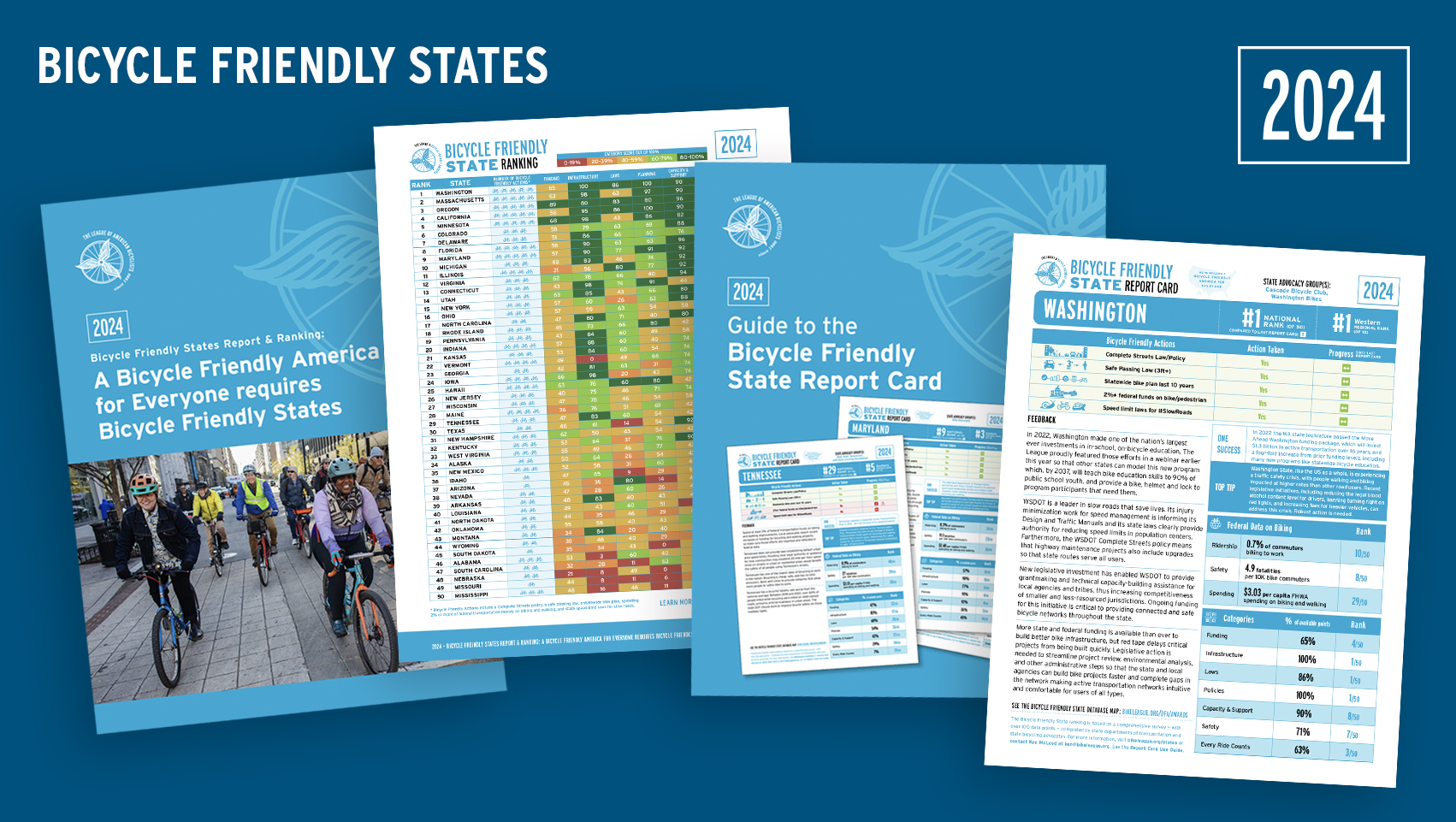States
States have an enormous role to play in making biking better for everyone in communities across the United States. States enact legislation that allows communities to lower speed limits, states fashion planning documents that guide how communities approach bicycling, and — crucially — states own and are responsible for a large amount of roads and highways.
Our Bicycle Friendly State℠ program looks at and ranks how each state is taking actions that contribute to building a Bicycle Friendly America for Everyone.
The Bicycle Friendly State℠ program is structured around a ranking of all 50 states based upon publicly available data and a survey completed by state Departments of Transportation and/or state bicycle advocacy organizations. This data is used to rank and create a report card for each state. A new ranking is release every two years.
New for 2024! Learn more about overall efforts by all states to improve the safety and experience of people bicycling by reading our 2024 national report and exploring our state report cards.
Learn More About Bicycle Friendly States
About the BFS Program
The Bicycle Friendly State program was launched in 2008 in order to better understand state efforts related to bicycling and provide a comparative framework that allows states to easily identify areas of improvement. Through our ranking, we hope that states and the public can easily understand the relative strengths and weaknesses of each state’s efforts related to bicycling.
The primary focus of the Bicycle Friendly State program is on the efforts of state Departments of Transportation, governors, and state legislators. These three groups are powerful policymakers and implementers who significantly impact conditions for bicyclists in each state. The League recognizes that there are often other departments that play a key role in state biking policies and programming, including Departments of Health, Natural Resources, Highway Patrol, Motor Vehicle Licensing, and others. While we encourage engagement with those departments, our survey does not explicitly ask for information from them.
Our program does not and cannot capture all efforts to improve bicycling in each state and we encourage people interested in efforts in their state to reach out to the League or our member organizations identified on each report card.
